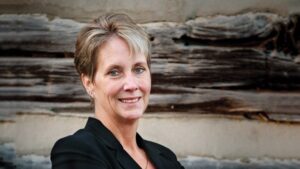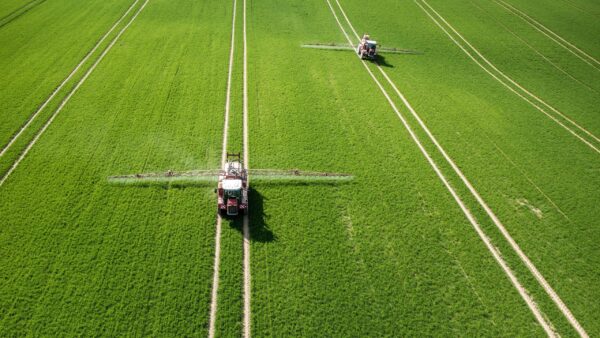Giant Views of the Industry
_x000D_
The face of the seed industry is evolving. Not only are farmers and their needs changing, but the increased use of new technologies is changing the business landscape of the seed industry. Six experts from this year’s Giant Views of the Industry discuss seed’s role in the face of these changes and how to navigate the waters during uncertain times._x000D_
_x000D_
One common idea echoed throughout the Giant Views of the Industry video interviews this year—the face of the seed industry is evolving and as such it is a very exciting time in the seed industry. We’re entering a new era of innovation, and Canada is in a good position to lead that charge._x000D_
_x000D_
“[The present Canadian government] is very pro-innovation,” says Patty Townsend, CEO of the Canadian Seed Trade Association. “It wants to look at how Canada can deliver innovation and become more competitive, developing newer products that are produced in a more efficient way to meet increased market demands. And that’s really good for us because it gives us the platform to go in and say, ‘if you’re pro-innovation, we need investment in innovation.’”_x000D_
_x000D_
The private sector is the single largest investor now in plant breeding and research, and Townsend says the government needs to give the seed industry the kind of regulatory, trade and intellectual property protection environment required to work with that investment._x000D_
_x000D_
“As a result, they are starting to look at things like finally bringing our plant breeders’ rights legislation into compliance with the UPOV 1991 convention. They’re looking at incentives for innovation, and they’re toying around with ideas like an AgraInnovation Fund that might help spur investment. We’re ever-hopeful for our certified seed tax incentive and we keep working on that. So it’s very positive,” says Townsend._x000D_
_x000D_
Staying Competitive_x000D_
_x000D_
In this new era of innovation in Canada, consolidation is still prevalent; the survivors will be those who strive to offer customers something unique or cutting-edge._x000D_
_x000D_
“The phrase we like to use is ‘think like a grower.’ We feel a grower doesn’t just look at individual issues around the farm, they try and look at the overall picture,” says Norm Dreger, head of cereals in North America for Syngenta. “So we’re trying to look at our approach with a more holistic view as well, in terms of what products we bring to market, what solutions we can bring.”_x000D_
_x000D_
It also means staying on top of new technologies and making sure sales staff are highly educated. “I think farmers on one hand are very appreciative of all the new technology and effort going into developing new material, but they’re also finding it a bit overwhelming,” says Monte Kesslering, vice-president of seed and crop protection for Viterra. “More and more, the farmer is looking to the seed company or retailer to provide good solid agronomic advice on what crops they should be growing and also what varieties of those crops they should be growing._x000D_
_x000D_
“Farmers have a number of different issues they are dealing with; making decisions on varieties is only one of the decisions they have to make, so they are relying on their seed selling experts more than ever,” he says._x000D_
_x000D_
However, Robert Clark, president and CEO of Pickseed Companies Group, says it still comes down to the basic principles seed companies have been using for years. “I don’t think the seed company-customer relationship is changing that much. I think technology is changing in terms of our ability to communicate—but the fundamental basics haven’t changed,” he says. “It is still very much a personal relationship business. It’s very much our salesperson and their relationship with the person across the table and, in spite of all the efficiency of email and internet, nothing can replace that face-to-face contact.”_x000D_
_x000D_
Dreger says that in terms of selling more seed, this also means finding ways to continue to improve value with products that other companies aren’t offering. “It’s easy to say ‘sell value,’ but I think if people focus on creating value, growers are highly intelligent business people and they will figure it out,” says Dreger. “If growers see the value there, they’ll be willing to pay for it so it’s really a question of creating value.”_x000D_
_x000D_
As a result, he says Syngenta has reorganized its business structure by integrating its crop protection and seed business units. “We’re looking at not only new chemistries and varieties on their own, but we’re also overlaying them and looking for even more value than we’ve seen before from either of [these categories] individually,” he says._x000D_
_x000D_
Businesses Within the Business_x000D_
_x000D_
This desire to add value has also resulted in massive growth of the global seed treatment and enhancement sector—and in fact, some feel certain aspects with that sector, such as seed coating, are becoming businesses in their own right._x000D_
_x000D_
“Seed coating technology is very complex and we think it’s a business within the seed industry on its own,” says JanWillem Breukink, president and CEO of INCOTEC Group BV. “I think seed companies are working strongly with genetics and breeding and [seed coating] technology is quite far away from a breeding company’s core business. As a result, we believe our company will grow substantially in coming years because the amount of this kind of technology will only increase._x000D_
_x000D_
“The expertise is so specialized, and it is becoming more and more specialized, and we are going to fill that hole that you see in the industry. We think that we, as an independent global company, have a very special position within the seed industry,” he says._x000D_
_x000D_
The seed treatment sector is still a relatively young business if you compare it with crop protection, and it’s also evolving. INCOTEC’s Breukink feels that seed enhancement products are starting to dive into trait territory. “We are very active in applying all kinds of material that stimulates or protects the plant—either biological or chemical actives that stimulate the roots of the plant,” he says. “Everybody is talking about genetics and these products are an example of what can be done around or with the seeds. So the question becomes, ‘With that seed space that you have created, how can you add more active to it that stimulates or protects plants, or how can you insert genes or trick the seeds to put up certain resistance?’ and that’s a completely new world we’re focusing on.”_x000D_
| _x000D_
“I think technology is changing in terms of our ability to communicate—but the fundamental basics haven’t changed.” _x000D_ —Robert Clark of Pickseed _x000D_ |
_x000D_
The increase of technology has also seen an increase in law firms specializing in plant patents. Erich Veitenheimer is a partner within the Patent Counseling and Prosecution division of Cooley LLP. He says their client base within the seed industry has grown substantially in recent years and will only continue to expand as more technologies are discovered._x000D_
_x000D_
Veitenheimer, who had an extensive background in plant breeding before beginning his career in law, says his practice helps ag biotech companies protect their intellectual property, ensures companies aren’t infringing on other companies’ IP and defends companies against accusations that they have infringed on other companies’ IP._x000D_
_x000D_
“We take some of that burden away from plant breeders and biotech companies,” he says. “We help relieve them of some of the stress around IP, and help them figure out what’s the best way for them to do what they need to do on that front.”_x000D_
_x000D_
Industry Goals_x000D_
_x000D_
Any business is only as strong as the industry around it. According to Townsend, CSTA is staying on top of the major issues and has a lot of positive projects underway, including an internationally accepted policy on low-level presence to help seed trade. “We have our government, domestically, looking at our proposal to use existing quality standards as a low-level presence policy for risk management,” she says._x000D_
_x000D_
Townsend says CSTA is also focusing on other trade issues such as harmonizing phytosanitary measures, as well as plant breeders’ rights, intellectual property protection and a campaign on how Canada can feed a growing population._x000D_
_x000D_
She is passionate that the association has a tremendous opportunity to really step up in today’s rapidly evolving landscape and become an even better and bigger influence in the overall agricultural process in Canada. “CSTA has the opportunity to lead a lot of that charge and to work with partners–we maybe haven’t done as much of [that] as we should have,” says Townsend._x000D_
_x000D_
Navigating an Unknown Future_x000D_
_x000D_
A rising world population and the challenge of producing more food with less is on the top of everyone’s minds. And the seed industry sits in a perfect position to rise to that challenge._x000D_
_x000D_
“If you consider the trends in the global environment—increasing the amount of food but also high-quality food—I think the seed business will grow substantially,” says Breukink. “Seed has become an essential part of the future for global development and we’ll hear a call for more high-quality food more and more in many parts of the world. That’s an enormous challenge and the seed industry will play a very important role in that. I can see it growing in at least double figures per year.”_x000D_
_x000D_
Townsend agrees, but has no doubt the Canadian seed industry can rise to that challenge. “If we can make people understand that we have a responsibility to feed a growing population while dealing with climate change pressures and other global issues, but that we also have access to the perfect environment and the kind of talent to foster new innovation and meet those challenges, then I think Canada can be a leader—we just have to keep working really hard,” she says._x000D_
_x000D_
Julie McNabb













